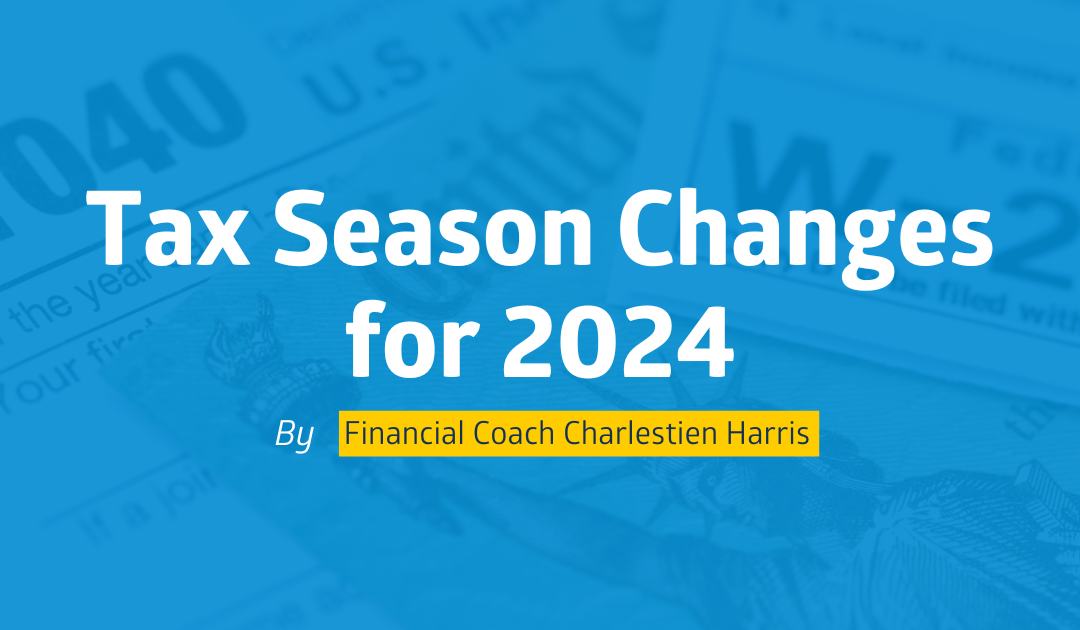By Charlestien Harris
The current focal point in finance revolves around the impending tax filing season. January marks the time when taxpayers gear up to receive their tax forms, ensuring timely filing.
Employers, as mandated by law, must distribute tax forms to employees by Jan. 31, 2024. In most cases, this distribution occurs on time, so keep a lookout for your current tax forms. If, for any reason, you do not receive your forms, simply request another copy from your employer.
With the approaching 2024 tax season, there are noteworthy changes that have been implemented. Let’s delve into these changes.
1. Increased Standard Deductions:
-
- For 2024, the standard tax deduction for single filers has risen to $14,600, a $750 increase from 2023.
- Married couples filing jointly now have a standard deduction of $29,200, up by $1,500 from the previous year.
- Married individuals filing separately now have a deduction of $14,600.
- Head of household filers see an increase of $1,100, going from $20,800 to $21,900.
- Seniors also experience an increased standard deduction, but specific guidelines apply. Refer to IRS guidelines for details. It’s crucial to choose the tax filing status that maximizes your benefits. Carefully review the qualifications for each filing status to ensure accurate tax preparation by your tax preparer.
2. Impact of Restarted Student Loan Payments:
-
- Interest on most student loans is tax-deductible. If you resumed loan payments after the pandemic pause, total the interest paid up until Dec. 31, 2023.
- Up to $2,500 of student loan interest is deductible annually, and you don’t need to itemize to claim it. The deduction is taken as an income adjustment on Schedule 1. Maintain organized records for your tax preparer to ensure accurate filing.
3. Changes in Retirement Contribution Limits:
-
- The IRS increased the maximum contribution to 401(k) plans for individuals to $23,000 in 2024, up from $22,500 in 2023.
- The IRA catch-up contribution limit remains $1,000 for 2024, with an annual cost-of-living adjustment for individuals aged 50 and over.
- Roth IRA contributions are capped at $7,000 for 2024 (up from $6,500 in 2023), with an additional $1,000 “catch-up” contribution for individuals aged 50 and older. For more information, visit the IRS website.
4. Revised Gift Tax Guidelines:
-
- The gift tax, a federal tax on non-reciprocal transfers of money or property, starts at 18 percent and can reach 40 percent for certain gift amounts.
- For 2024, the annual gift tax exclusion is $18,000, up from $17,000 in 2023. Individuals can give up to $18,000 to as many people as they want without incurring taxes. Visit the IRS website for more details.
5. Increased Earned Income Credit:
-
- The Earned Income Tax Credit (EITC) for low-to-moderate income individuals and couples, especially those with children, has increased.
- For tax year 2024, the maximum EITC amount is $7,830 for qualifying taxpayers with three or more qualifying children, up from $7,430 in 2023. Check the IRS website for a table listing maximum EITC amounts and related information. Ensure you provide proper documentation to your tax preparer to claim this credit, which is sometimes overlooked.
Remember that Southern Bancorp is an official Volunteer Income Tax Assistance (VITA) site, offering free tax preparation services for low-to-moderate income residents. Contact your local branch or visit banksouthern.com/vita/ for more information. The tax preparation season runs from Jan. 23 to April 9, with services available on Tuesdays and Thursdays. If you’re not near a Southern Bancorp branch, visit the IRS website or MyFreeTaxes.com to find a VITA site near you, or call 1.800.829.1040.
For additional financial information, contact me via email at Charlestien.Harris@banksouthern.com or by phone at 662-624-5776.
Until next week – stay financially fit!

